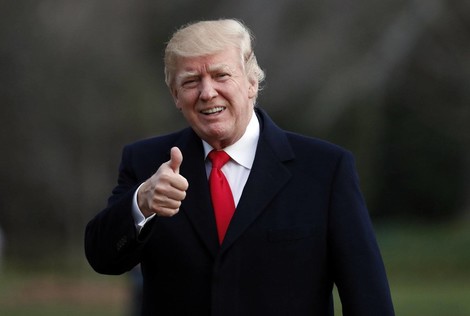Your podcast discovery platform
Curious minds select the most fascinating podcasts from around the world. Discover hand-piqd audio recommendations on your favorite topics.

piqer for: Globalization and politics Global finds
I am an Australian freelance journalist focussing on conflicts, politics, and warzones around the world. I have been working as a journalist for over 5 years, having reported from Australia, Germany, China, Egypt, Palestine, and Ukraine. I am especially interested in the way that new technologies are being used in conflict zones in unexpected and often disturbing ways. During my time working as a journalist, I also co-founded open-source war reporting site Conflict News.
Trump’s Climate Change Shift Is Really About Killing The International Order
Of all of the strange policy decisions made by the Trump administration, none are likely to have more of a lasting impact than the those related to the environment. Specifically, this week the president rolled back a large number of environmental regulations and removed carbon dioxide from a list of designated pollutants.
Such measures were carried out in the name of bringing back jobs to the USA and reviving the country's coal industry — a major promise to a working-class demographic instrumental in bringing him to power. However, it is unlikely that this will achieve these aims, and indeed better jobs could likely have been created through investment in renewable energy and innovative efficiency measures.
Given this, Trump's policy moves make little sense, even putting aside his bizarre claim that climate change is a Chinese conspiracy. But there is perhaps another reason for his opposition to protecting the environment — one that surpasses a mere handout to his voter base.
As Amanda Erickson points out in this article for the Washington Post, Trump's opposition may owe more to a certain brand of nationalism that is adhered to by many of the contemporary right-wing populists around the world. Given that global warming and other environmental problems are international in nature, and can only be solved through cooperation, she suggests that they are anathema to hard-line nationalists.
This perspective outlined in the article gives an important insight into the mindsets of these politicians. Indeed, a thorough understanding of this will be invaluable for those campaigning for more environmental action to know what they are truly up against.
